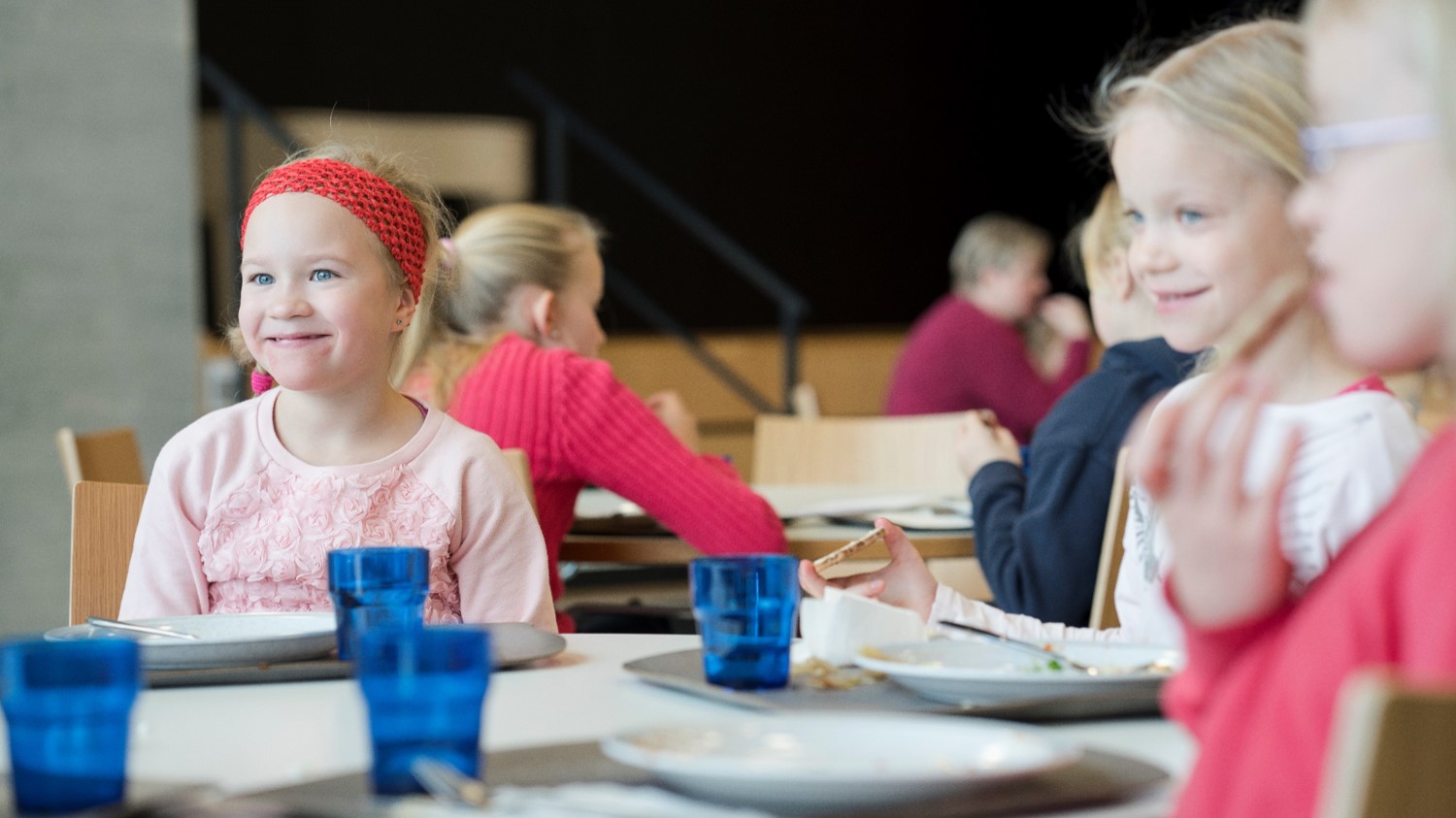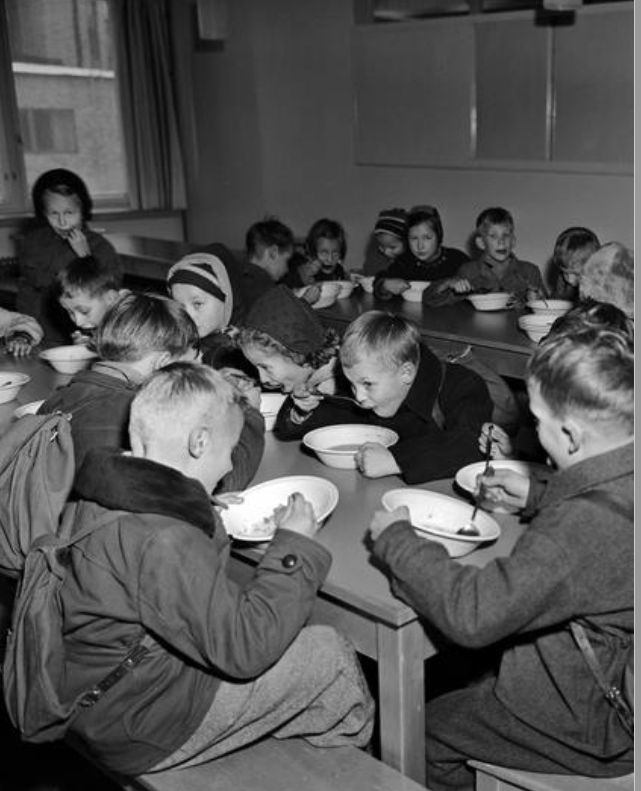Finland at the forefront in promoting school meals: Not only healthy food, but also better educational results and improving gender equality
Finland co-chairs the School Meals Coalition, an initiative officially launched at the United Nations Food Systems Summit in September 2021, together with France.
The High Level Public Launch event of the School Meals Coalition was organized(Link to another website.) (Opens New Window) in November 2021.
The main task of the Coalition is to support the development of school meals programs worldwide. The goal of the Coalition is that by 2030 every child worldwide receives a healthy meal at school. The unprecedented recent crisis, the Covid-19 pandemic, conflicts and the Russian invasion in Ukraine, as well as climate change have done the work of the School Meals Coalition even more important, as they have a significant impact on global food security and they have affected the overall health and wellbeing of children.
Coalition’s center of gravity is governments: they lead and set the priorities for the Coalition, while partners, such as UN agencies, CSOs, think tanks and academia, support those priorities. Ville Skinnari, Minister for Development Cooperation and Foreign Trade of Finland, acts as the WFP’s Global Champion for School Meals. He provides high-level advocacy and personal leadership and commitment in raising awareness and carrying out outreach in this important topic.
Several side events on school meals have been organized in parallel with major UN and other meetings – for instance, in the context of the Tokyo Nutrition for Growth (N4G) Summit in December 2021, the EU-Africa Summit in February 2022, and the Humanitarian Networks and Partnership Weeks in May 2022 in Geneva. The School Meals Coalition is currently preparing its involvement with the Transforming Education Summit held in connection of the UN General Assembly (UNGA 77) in New York in September 2022 and its Pre-Summit held in Paris in June 2022.

Photo: Elina Manninen/Keksi
The number of countries committed to school meals is growing
The School Meals Coalition is keen to welcome more members and partners to join - currently there are 67 member states and 68 partners, consisting of, for example, UN organizations, Civil Society Organizations and academia.
At present, 14 member states have made national commitments. Finland, for example, has committed to provide technical expertise for countries wishing to develop their school meals programmes(Link to another website.) (Opens New Window). Finland also doubled its support to WFP’s school meals programmes with a contribution of 5 million euros channeled to Central African Republic, Ethiopia, Kenya, Madagascar and Somalia in 2021.
It is also possible to develop the country's school meals system to be more sustainable. As one of its national commitments to the Coalition, Finland is committed to implement school meals procurement criteria that include environmentally friendly cultivation methods, food safety, nutrition as well as animal welfare and health aspects.
National commitments may vary based on the current stage of development of the school meals program in each country and the objectives and priorities of different countries.
WFP’s (World Food Programme of the United Nations) School-based Programmes Division serves as the coordination body and secretariat of the Coalition and provides support and overall backstopping to member states and stakeholders of the Coalition.
The Coalition has five initiatives – the Research Consortium collects and disseminates evidence for governments to support decision making, the Sustainable Financing Taskforce provides information on resource mobilisation for school meal programmes, and the Peer-to-Peer Community shares best practices and lessons learned. The Monitoring and Data Initiative creates a database which provides open and accessible in-time data on national school meals, school health and nutrition. Finally, the Communications and Partner Outreach Group channels engagement with partners like CSOs and advocacy groups, handles outreach and advocacy with these key partners.
Learn more about the School Meals Coalition(Link to another website.) (Opens New Window)

Photo: Riku Isohella/Velhot Photography
Finland: A country with the longest history in school feeding
Finland has the world’s longest-running free-of-charge school feeding system, with a history of over 70 years. School meals were introduced in the 1940s as part of the post-war social policy. At first, food was offered to the children of the families with the lowest income, and very soon, the offering of school meals was expanded to all children.
Nowadays, all pupils and students attending pre-primary, basic and upper secondary education receive a full, balanced meal. In the country of 5.5 million inhabitants, approximately 830,000 school meals are served daily. School meals are seen as an essential part of children’s well-being, more than just nutrition: it sustains the ability to study, renews energy, and increases the students’ awareness and knowledge of food and nutrition. Since 2004, school meals have been part of the national school core curriculum giving the system an educational status.
Learn more about the Finnish school meals program(Link to another website.) (Opens New Window)

Photo: Helsinki City Museum
School meals enhance gender equality worldwide
In the worldwide scale, school meals have a great impact for children, their families, and well-being of whole societies. When children get a warm meal in school, they are able to study all day. School meals improve children’s learning capabilities and educate them in healthy diets. School meals also support equal opportunities and education for all, including girls and children from poor families, and they incentivize all children to enroll and remain in school.
School meals play a significant role in supporting gender equality and girls’ empowerment in many ways, including preventing early marriages and keeping girls in schools. They also make it easier for parents to work outside home, increasing female labour force participation and thus supporting economic growth.
In addition, school meals provide an opportunity to source local products and promote the local food culture. They support entire communities to become more resilient. In brief, school meals are a vital investment for the future.

Photo: IFAD/Susan Beccio

